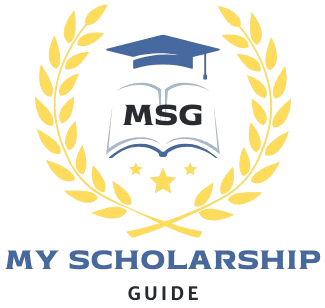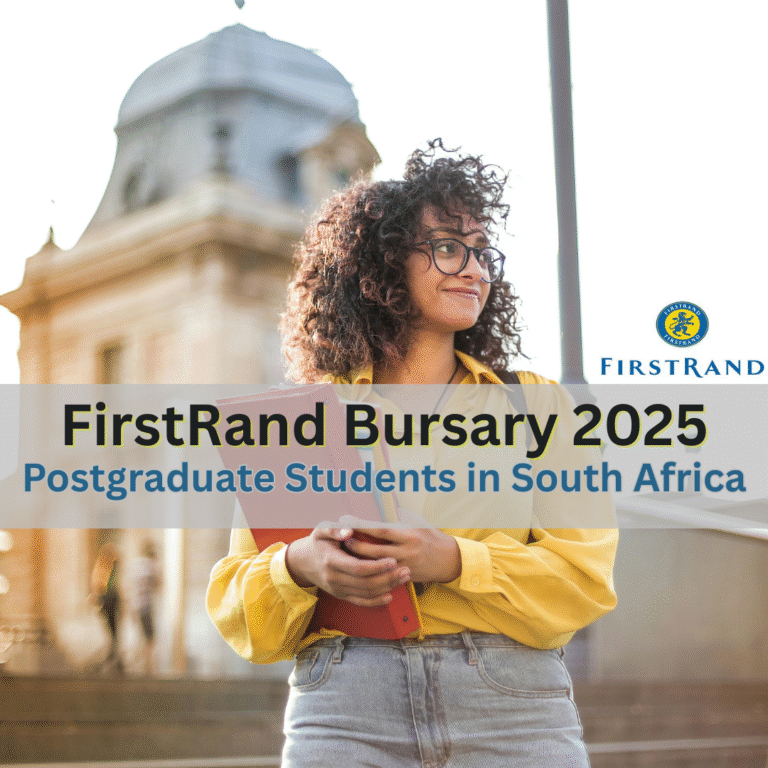Queen Elizabeth Commonwealth Scholarships 2026 for Master’s Students
Queen Elizabeth Commonwealth Scholarships 2026 for Master’s Students
Application Deadline: June 4, 2025
Are you dreaming of pursuing a Master’s degree in a Commonwealth country but worried about the financial burden? The Queen Elizabeth Commonwealth Scholarship might be your ticket to academic excellence and global exposure. This prestigious scholarship program opens doors for talented students from across the Commonwealth, providing them with life-changing educational opportunities.
As someone who has guided numerous students through international scholarship applications, I’m excited to share everything you need to know about the Queen Elizabeth Commonwealth Scholarships for the 2026 academic year. This comprehensive guide will walk you through the eligibility requirements, application process, benefits, and tips to maximize your chances of success.
What is the Queen Elizabeth Commonwealth Scholarship?
The Queen Elizabeth Commonwealth Scholarship (QECS) is a prestigious international scholarship program established in honor of Her Majesty Queen Elizabeth II’s lifetime of service to the Commonwealth. Managed by the Association of Commonwealth Universities (ACU), these scholarships enable bright minds from Commonwealth countries to pursue Master’s degrees in other Commonwealth nations.
The scholarship program was officially launched at the 2018 Commonwealth Heads of Government Meeting, creating new opportunities for students to gain international experience, network across the Commonwealth, and contribute to the development of their home countries.
Why the Queen Elizabeth Commonwealth Scholarship Stands Out
Unlike many other scholarship programs, the QECS emphasizes:
- Cross-cultural exchange between diverse Commonwealth nations
- Knowledge sharing that benefits both host and home countries
- Leadership development through academic and practical experiences
- Building lasting networks across the Commonwealth’s 54 member countries
As Nadine, a 2023 QECS scholar from Jamaica studying in South Africa, shared with me: “This scholarship changed everything for me. Beyond the financial support, it’s the connections I’ve made and the perspective I’ve gained that will stay with me forever.”
Key Benefits of the Queen Elizabeth Commonwealth Scholarship
The Queen Elizabeth Commonwealth Scholarship offers a comprehensive package that covers more than just tuition fees. Here’s what you can expect if selected:
Financial Support
- Full tuition fees coverage for your chosen Master’s program
- Living allowance to cover accommodation and daily expenses
- Return airfare to your host country
- Arrival allowance to help you settle in
Beyond Financial Benefits
- Access to the Commonwealth Scholarship and Fellowship Plan (CSFP) network, connecting you with scholars worldwide
- Opportunities to engage in high-level Commonwealth events
- Professional development workshops and leadership training
- Alumni network access after completion of your studies
These benefits extend far beyond your time as a student, creating a foundation for your future career and continued engagement with the Commonwealth.
Eligibility Criteria
The Queen Elizabeth Commonwealth Scholarship maintains rigorous eligibility criteria to identify exceptional candidates. To qualify for the 2026 cycle, you must:
- Be a citizen of a Commonwealth country
- Have completed or be on track to complete a Bachelor’s degree with at least upper second-class honors or equivalent
- Apply to a university in a Commonwealth country other than your home country
- Demonstrate leadership qualities and commitment to community service
- Meet the English language requirements of your chosen university
- Not hold dual citizenship with the country where you wish to study
- Not have previously received a Commonwealth Scholarship
It’s important to note that each host institution may have additional specific requirements, so be sure to check the details for your target university.
Available Study Destinations and Programs
The Queen Elizabeth Commonwealth Scholarship offers opportunities to study at various universities across the Commonwealth. Participating countries include:
- Botswana
- Canada
- Fiji
- Ghana
- India
- Kenya
- Malaysia
- New Zealand
- Pakistan
- Rwanda
- South Africa
- Sri Lanka
- Tanzania
- Uganda
- United Kingdom
The scholarship covers a wide range of Master’s programs, with particular emphasis on:
- Climate resilience
- Sustainable development
- Public health
- Engineering and technology
- Education
- Governance and peace-building
When I spoke with Rajiv, a program coordinator for QECS, he emphasized that “the scholarship prioritizes fields that align with Commonwealth priorities and allow scholars to make meaningful contributions when they return home.”
The Application Process: Step by Step
Applying for the Queen Elizabeth Commonwealth Scholarship requires careful planning and attention to detail. Follow these steps to ensure a smooth application process:
1. Research Available Programs
First, visit the official ACU website to review the list of participating universities and available programs. Identify institutions offering Master’s degrees in your field of interest.
2. Check Specific University Requirements
Each host institution has its own admission requirements and procedures. Review these carefully to ensure you meet all prerequisites for your chosen program.
3. Prepare Required Documents
Gather the following essential documents:
- Academic transcripts and certificates (with certified translations if not in English)
- Proof of citizenship (passport or national ID)
- Current CV/resume highlighting academic achievements, work experience, and extracurricular activities
- Two reference letters from academic or professional referees
- Proof of English language proficiency (IELTS, TOEFL, etc.) if required
- Research proposal (for research-based Master’s programs)
4. Create an Online Application Account
Visit the ACU’s online application portal and create an account to begin your application.
5. Complete the Application Form
The online application form includes sections on:
- Personal information
- Academic background
- Professional experience
- Statement of purpose
- Community involvement and leadership
- Research interests (if applicable)
6. Submit Your Application Before the Deadline
The deadline is June 4, 2025. However, I strongly recommend submitting your application at least two weeks before the deadline to avoid any technical issues or last-minute complications.
7. University Application
Remember that the QECS application is separate from university admission. You must also apply directly to your chosen university according to their procedures and deadlines.
Crafting a Standout Application: Expert Tips
Having counseled numerous successful scholarship applicants, I can share some insider tips to help your Queen Elizabeth Commonwealth Scholarship application stand out:
1. Align Your Goals with Commonwealth Values
The scholarship committee looks for candidates whose aspirations align with Commonwealth priorities. In your personal statement, clearly articulate how your studies will contribute to sustainable development, climate action, or other Commonwealth focus areas.
2. Highlight Your Community Impact
Commonwealth Scholarships place significant emphasis on how recipients will use their education to benefit their communities. Provide concrete examples of your previous community involvement and future plans.
Sarah, a 2022 QECS recipient studying urban planning in Canada, shared: “I believe what made my application successful was clearly connecting my previous volunteer work in informal settlements to my proposed research and how I planned to implement solutions back home.”
3. Demonstrate Leadership Potential
The scholarship aims to develop future Commonwealth leaders. Highlight leadership roles you’ve held, challenges you’ve overcome, and how you’ve influenced positive change.
4. Be Authentic and Specific
Avoid generic statements and clichés. Instead, tell your unique story with specific examples that demonstrate your passion, commitment, and suitability for the scholarship.
5. Connect Your Research to Development Challenges
If applying for a research-based Master’s, clearly articulate how your proposed research addresses specific development challenges in your country or region.
6. Show Long-term Vision
Explain not just what you hope to gain from the scholarship, but how you plan to apply your knowledge and skills long-term to benefit your community and country.
Selection Process: What Happens After You Apply?
Understanding the selection process can help manage your expectations and prepare accordingly:
Initial Screening
Applications first undergo a rigorous screening process to ensure eligibility and completeness. Incomplete applications are typically eliminated at this stage.
Academic Assessment
Qualified applications are then evaluated based on academic excellence, research potential, and alignment with program priorities.
Interview Stage
Shortlisted candidates are invited for virtual interviews with a panel comprising representatives from the ACU and host universities. These interviews typically assess:
- Academic preparedness
- Motivation and commitment
- Leadership potential
- Communication skills
- Future plans
Final Selection
Final selections are made based on interview performance, application strength, and available scholarship slots. The process is highly competitive, with typically less than 10% of applicants receiving scholarships.
Notification Timeline
Results are usually announced by May 2026, giving successful candidates sufficient time to prepare for their studies beginning in September/October 2026.
Preparing for Success: If You’re Selected
Congratulations if you’re among the selected scholars! Here’s what to prepare for:
Visa Arrangements
You’ll need to apply for a student visa for your host country. The scholarship administrators will provide supporting documentation, but the visa application is your responsibility.
Pre-departure Briefing
The ACU typically organizes pre-departure briefings (virtual or in-person) to orient scholars about what to expect in their host countries.
Accommodation
While the scholarship provides a living allowance, securing suitable accommodation is your responsibility. Many host universities assist international students with housing options.
Cultural Preparation
Take time to learn about your host country’s culture, customs, and academic expectations to ease your transition.
Financial Planning
The living allowance is designed to cover essential expenses, but careful budgeting is still important. Research the cost of living in your host city and plan accordingly.
Making the Most of Your Queen Elizabeth Commonwealth Scholarship
Based on feedback from previous scholars, here are strategies to maximize your QECS experience:
Engage Beyond Academics
The scholarship is not just about earning a degree; it’s about developing as a Commonwealth ambassador. Participate in university clubs, community events, and networking opportunities.
Document Your Journey
Many scholars maintain blogs or journals documenting their experiences. This can be valuable for personal reflection and for inspiring future applicants from your country.
Connect with Other Commonwealth Scholars
Form study groups and social connections with fellow scholars and international students. These relationships often become the most valuable part of the experience.
Seek Mentorship
Identify mentors both at your host institution and in your field who can provide guidance and open doors to future opportunities.
Plan Your Return Impact
Throughout your studies, refine your plans for how you’ll apply your knowledge back home. The most successful scholars begin implementing their return projects even before graduation.
FAQs About Queen Elizabeth Commonwealth Scholarships
Can I apply if I’ve already started my Master’s program?
No, the scholarship is designed for new students beginning their Master’s studies in the 2026-2027 academic year.
Is there an age limit for applicants?
While there’s no explicit age limit, the program typically targets early to mid-career professionals. Most successful candidates are under 35 years old.
Can I apply to multiple universities under this scholarship?
Yes, you can indicate preferences for up to three different universities or programs in your application.
What happens if my chosen university has a different application deadline?
You must meet both the QECS application deadline and your chosen university’s separate admission deadline. It’s advisable to apply to the university first or simultaneously.
Are part-time or distance learning programs eligible?
No, the scholarship only supports full-time, in-person Master’s degree programs.
Can family members accompany me during my studies?
The scholarship does not provide additional allowances for dependents. If you plan to bring family members, you’ll need to secure additional funding and appropriate visas for them.
What if I need to extend my studies beyond the standard duration?
The scholarship typically covers the standard duration of the Master’s program (usually 12-24 months). Extensions are considered only in exceptional circumstances.
Conclusion: Your Journey to a Commonwealth Scholarship
The Queen Elizabeth Commonwealth Scholarship represents more than financial support for your education—it’s an invitation to join a global community of changemakers committed to Commonwealth values and sustainable development.
The application process is demanding, but the rewards—both personal and professional—are immense. As you prepare your application for the 2026 cycle, remember that the scholarship committee is looking for candidates who demonstrate not only academic excellence but also leadership potential and commitment to creating positive change.
Begin your preparation early, research your options thoroughly, and craft an application that authentically communicates your unique story and aspirations. With dedication and careful planning, you could join the prestigious community of Commonwealth Scholars making a difference across the globe.
Ready to Apply?
Disclaimer
Unless otherwise stated, www.myscholarshipguide.com is not affiliated with any of the scholarship providers listed on our website, nor do we process applications on behalf of any organization. The content provided is for informational purposes only, and visitors are encouraged to use this information at their own discretion.







